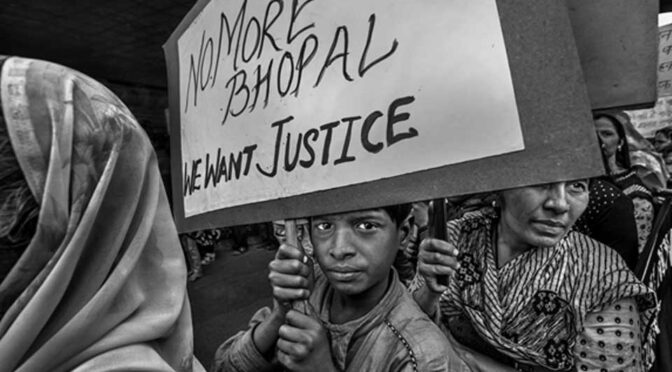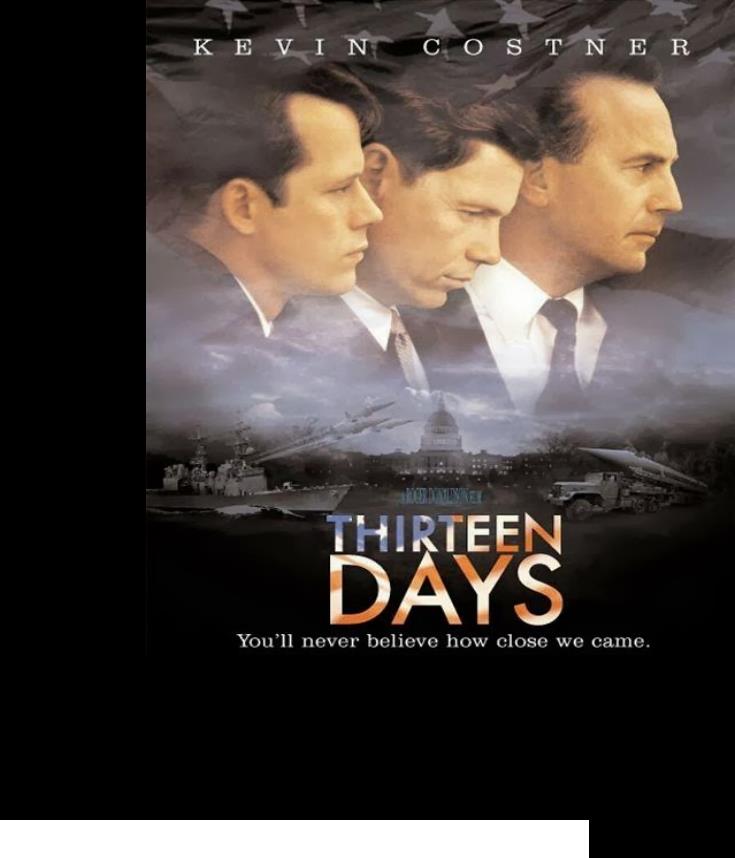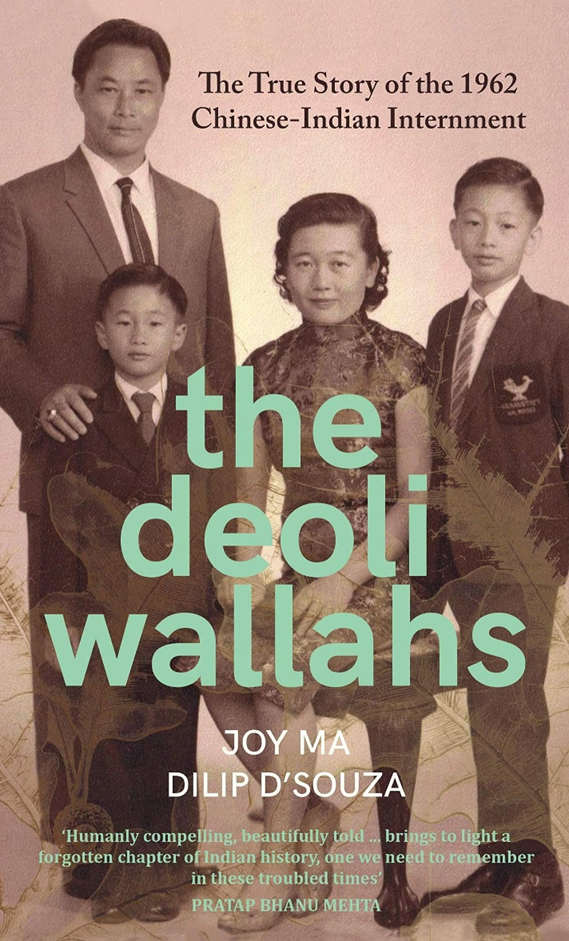MAN MADE DISASTER AND THE POLITICS OF SUFFERING: CASE OF BHOPAL GAS TRAGEDY
Posted on : August 9, 2021Author : Sristhi Ghosh

The problem of suffering is an ‘experiential challenge in whose face the meaningfulness of a particular pattern of life threatens to dissolve into a chaos of thingless names and nameless things’[i]. The anthropological discourse of the Bhopal Disaster, presented by Veena Das (1995)[ii] illustrates the internal orientation of suffering which is inextricably linked with discourse of power whereby the responsibility for suffering must be beared by the sufferer themselves, holding victims as personally responsible for what has occurred to them, disallowing the powerless to exorcise their suffering. The systematic suffering of the victims of the Bhopal Gas Tragedy reveals the bureaucratic, scientific and judicial pronouncements of suffering inflicted on the victims who were/are not only denied justice by delayed judicial proceedings but at the same time repressed and censored to reveal their suffering. Further, the power of the chemical industry, financial and organizational limitations, lack of bureaucratic rationality and judicial pragmatism have delimited the chemical disaster victims in seeking remedy for the past 37 years.
Suffering caused by chemical disasters take forms of physical, mental and socio-economic trauma which intensifies into further suffering, punishment and injustice for the vulnerable and powerless due to the institutional, political and social responses. The Bhopal Gas Tragedy remains the worst man-made technological disaster in the history of world industrial disasters. The 30 tons of MIC Gas leak between 2nd– 3rd December 1984 from a plant owned, managed and operated by Union Carbide India Limited (UCIL) in the city of Bhopal immediately took lives of 1754 citizens, rendering thousands with partial and permanent disabilities according to the government data. In the next two decades, estimated death toll of the chemical catastrophe rose to 10,000 and further to 20,000; while more than half a million people were exposed to the gas. Many are suffering from long term illness like ocular, respiratory, reproductive, neurobehavioral and genetic disorders which pass on to children who are born with permanent disabilities and abnormalities[iii]. With prolonged pain, cancer, stillbirths, miscarriages, lung and heart diseases and premature deaths one may infer that the tragedy continues to live even after almost thirty seven years of the urban disaster. As prominent environmentalists Sunita Narain and Chandra Bhushan put it, “Bhopal was struck by two tragedies: the one that happened immediately, and the other that unfolded in the years that followed”.[iv]
Government’s response to the incident was tardy. The bureaucratic and administrative delays in handling the crisis was visible. Lives of the vulnerable were uncertain, full of chaos and panic with intensified death tolls of humans and animals and unplanned evacuations. The accident caused defoliation of trees and contamination of water bodies and lands. Even after a week, people were suspicious about the air they breathed, the water they drank, and the meat, flour, fish and vegetables they ate. There was fear of a possible epidemic besides loss of livelihood. The judicial-legal proceedings which followed, lacked pragmatism. While American lawyers flew down to file suits and pursue cases against the Union Carbide Corporation and its Indian subsidiary, the Government of India passed the Bhopal Gas Leak Disaster (Processing of Claims) Act in March 1985 by which the government in accordance with the parens patriae turned to be the only competent authority to represent the victims. Government intervention as a surrogate for handicapped people who are unable to make their own decisions limited representation, disallowing the powerless to reveal their suffering. It was more of a negotiation for compensation based on faulty victim tolls, while the seven held were soon left out on bail. The case, till date has seen no closure. Further, with change in ownership after Dow Chemical Company successfully took over UCC in 2001, the company has refused to take any responsibility of the tragedy. This, supplemented by government’s lack of initiative and delayed judicial proceedings have failed to spring justice to the victims and the new generation of victims and continues to be the cause of suffering for over thirty six years.
Other aspects of suffering percolated from indifference of successive Indian governments and bureaucratic bodies. It revolves around denial of rights of the victims and disavowal of responsibilities of the redressers. Indra Sinha, whose Booker Prize-nominated novel Animal’s People was based on the Bhopal disaster, wrote on the 25th anniversary: “Over the years the survivors have received little medical help. Being mostly very poor, they were often treated rudely. Government doctors would refuse to touch them. In 1994 the Indian government, eager to put the gas leak behind it, shut down all research studies into the effects of the gas, just as new epidemics of cancers, diabetes, eye defects and crippling menstrual disorders were beginning to appear.”[v] The victims and the following generational victims are living in abject poverty, thousands under debt trap due to their incapacity to work aftermath the disaster. Whatever little they earn are spent on their medical treatment. Compensation for such hardship is being denied on the grounds of not having enough documentation.[vi]
The stories of survivors compiled by John Riddles[vii] in ‘Bhopal’ highlights the extent of pain and suffering. To quote Sajida, who was six years old at the time of disaster,
“I was in the first grade at the time of the gas disaster. I remember being woken up by people in my family. I remember everyone vomiting and groaning and then joining the crowd of people who were trying to run away from the clouds of poison. Since then my problem of breathlessness has been getting worse and now everything appears blurry. I am also getting more and more weak……It’s been over 10 years since I have been so sick. My elder brother Rayees went breathless and died four years back in the hospital. My father who owned truck and three auto rickshaws had to sell one by one to pay for medical bills. My mother too is sick. Fever never leaves her. My father has been sick in bed and I am taking care of household expenses through zari work.”
Such is the dreadful legacy of the world’s worst chemical disaster which makes victims believe “it would be better if there was another gas leak which could kill us all and put us all out of this misery”. Omwati Yadav in her interview to Hannah Ellis Peterson in 2019 cried out “Thirty five years we have suffered through this, please just let it end. This is not life, this is not death, we are in the terrible place in between.”[viii]
-Sristhi Ghosh
Intern, Asia in Global Affairs
The opinions expressed within the content are solely the author’s and do not reflect the opinions and beliefs of the website.
[i] Geertz Clifford, The interpretation of cultures: selected essays. New York: Basic Books, ©1973. (pp. 103)
[ii]Das Veena, Critical events: An anthropological perspective on contemporary India. Delhi: Oxford University Press, 1995.
[iii] V. Ramana Dhara, Dhara Rosaline, The Union Carbide Disaster in Bhopal: A Review of Health Effects, Taylor and Francis Online (2010)
https://www.tandfonline.com/doi/citedby/10.1080/00039890209601427?scroll=top&needAccess=true (Accessed 2nd Aug. 2021)
[iv] https://www.downtoearth.org.in/coverage/environment/30-years-of-bhopal-gas-tragedy-a-continuing-disaster-47634 (Accessed 2nd Aug. 2021)
[v] https://www.thenationalnews.com/opinion/comment/bhopal-s-mass-human-tragedy-and-suffering-continue-to-this-day-1.799167 (Accessed 2nd Aug. 2021)
[vi] Sourav, Swati. “Children and Disaster: A Case of Bhopal Gas Tragedy.” Indian Anthropologist, vol. 49, no. 1, 2019, pp. 51–65. JSTOR, www.jstor.org/stable/26855091. (Accessed 2 Aug. 2021)
[vii] Riddle John, Bhopal, InfoBase Publishing, 2002 (pp. 60)
https://books.google.co.in/books/about/Bhopal.html?id=BbGwwp12GSEC&redir_esc=y (Accessed 3Aug.2021)
[viii] https://www.theguardian.com/cities/2019/dec/08/bhopals-tragedy-has-not-stopped-the-urban-disaster-still-claiming-lives-35-years-on (Accessed 3 Aug. 2021)





Leave a Reply